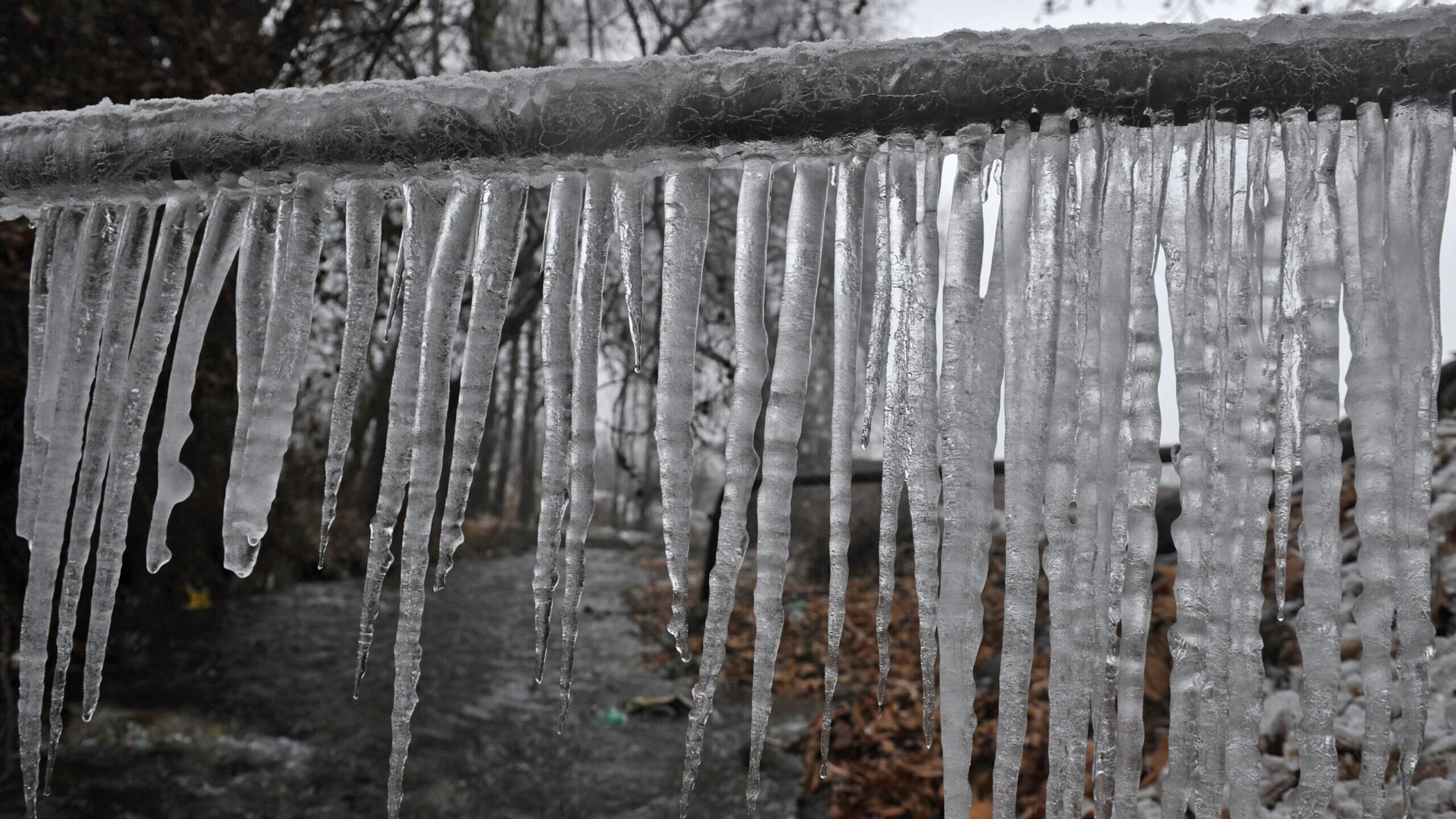Advice for Avoiding Frozen Plumbing in Cold Weather: Specialist Tips
Advice for Avoiding Frozen Plumbing in Cold Weather: Specialist Tips
Blog Article
The article author is making several good points related to 6 Ways to Prevent Frozen Pipes overall in the article down below.
:strip_icc()/snow-outdoor-faucet-pipes-4af65d1e5e904fb1aa7bf74071fe5d89.jpg)
Cold weather can damage your pipes, especially by freezing pipelines. Here's how to avoid it from happening and what to do if it does.
Intro
As temperatures decrease, the risk of icy pipelines boosts, potentially bring about pricey fixings and water damages. Recognizing exactly how to avoid frozen pipes is crucial for homeowners in cool environments.
Prevention Tips
Insulating vulnerable pipes
Wrap pipelines in insulation sleeves or make use of heat tape to protect them from freezing temperature levels. Focus on pipes in unheated or external locations of the home.
Heating methods
Keep interior spaces properly warmed, especially locations with plumbing. Open closet doors to enable warm air to flow around pipelines under sinks.
Just how to recognize frozen pipelines
Search for decreased water circulation from faucets, uncommon odors or noises from pipelines, and noticeable frost on exposed pipes.
Long-Term Solutions
Structural modifications
Consider rerouting pipes away from outside wall surfaces or unheated areas. Add additional insulation to attic rooms, cellars, and crawl spaces.
Updating insulation
Invest in high-grade insulation for pipelines, attics, and walls. Appropriate insulation assists preserve constant temperature levels and minimizes the threat of icy pipes.
Securing Outside Plumbing
Garden hoses and exterior taps
Disconnect and drain pipes garden hose pipes prior to wintertime. Install frost-proof faucets or cover outdoor taps with insulated caps.
Comprehending Frozen Pipes
What causes pipes to freeze?
Pipes freeze when subjected to temperature levels below 32 ° F (0 ° C) for prolonged durations. As water inside the pipes freezes, it broadens, taxing the pipeline walls and possibly creating them to burst.
Dangers and problems
Icy pipelines can cause water supply interruptions, residential property damage, and pricey repair services. Ruptured pipelines can flooding homes and cause comprehensive architectural damages.
Signs of Frozen Water Lines
Identifying frozen pipes early can stop them from bursting.
What to Do If Your Pipes Freeze
Immediate activities to take
If you suspect frozen pipes, keep faucets open up to alleviate pressure as the ice melts. Utilize a hairdryer or towels taken in hot water to thaw pipes gradually.
Verdict
Protecting against frozen pipelines needs positive measures and fast actions. By understanding the reasons, indications, and preventive measures, homeowners can safeguard their pipes during cold weather.
Helpful Tips to Prevent Frozen Pipes this Winter
UNDERSTANDING THE BASICS: WHY PIPES FREEZE AND WHY IT’S A PROBLEM
Water freezing inside pipes is common during the winter months, but understanding why pipes freeze, and the potential problems it can cause is crucial in preventing such incidents. This section will delve into the basics of why pipes freeze and the associated problems that may arise.
THE SCIENCE BEHIND FROZEN PIPES
When water reaches freezing temperatures, it undergoes a physical transformation and solidifies into ice. This expansion of water as it freezes is the primary reason pipes can burst. As the water inside the pipe freezes, it expands, creating immense pressure on the walls. If the pressure becomes too great, the pipe can crack or rupture, leading to leaks and water damage.
FACTORS THAT CONTRIBUTE TO PIPE FREEZING
Low Temperatures: Extremely cold weather, especially below freezing, increases the risk of pipes freezing. Uninsulated or Poorly Insulated Pipes: Pipes located in unheated areas, such as basements, crawl spaces, or attics, are more prone to freezing. Insufficient insulation or lack of insulation altogether exacerbates the problem. Exterior Wall Exposure: Pipes running along exterior walls are susceptible to freezing as they encounter colder temperatures outside. Lack of Heating or Temperature Regulation: Inadequate heating or inconsistent temperature control in your home can contribute to frozen pipes. PROBLEMS CAUSED BY FROZEN PIPES
- Pipe Bursting: As mentioned earlier, the expansion of water as it freezes can cause pipes to burst, resulting in significant water damage.
- Water Damage: When pipes burst, it can lead to flooding and water damage to your property, including walls, ceilings, flooring, and personal belongings.
- Structural Damage: Prolonged exposure to water from burst pipes can compromise the structural integrity of your home, leading to costly repairs.
- Mold and Mildew Growth: Excess moisture from water damage can create a favorable environment for mold and mildew growth, posing health risks to occupants.
- Disrupted Water Supply: Frozen pipes can also result in a complete or partial loss of water supply until the issue is resolved.
WHY CERTAIN PIPES ARE MORE PRONE TO FREEZING
- Location: Pipes located in unheated or poorly insulated areas, such as basements, crawl spaces, attics, or exterior walls, are at higher risk of freezing.
- Exterior Pipes: Outdoor pipes, such as those used for irrigation or exposed plumbing, are particularly vulnerable to freezing as they are directly exposed to the elements.
- Supply Lines: Pipes that carry water from the main water supply into your home, including the main water line, are critical to protect as freezing in these lines can affect your entire plumbing system.
- Underground Pipes: Pipes buried underground, such as those connected to sprinkler systems or outdoor faucets, can be susceptible to freezing if not properly insulated.
https://busybusy.com/blog/helpful-tips-to-prevent-frozen-pipes-this-winter/

As a passionate reader about Helpful Tips to Prevent Frozen Pipes this Winter, I was thinking sharing that portion was essential. Enjoyed reading our blog posting? Please share it. Let another person check it out. Thanks for your time invested reading it.
Book A Service Report this page